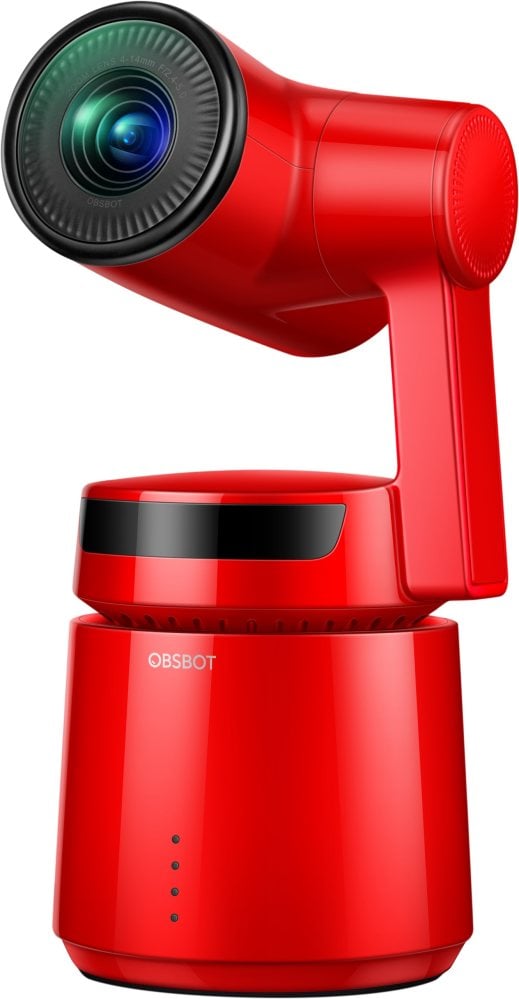
Chinese start-up bets on AI webcam in the remote work era following a pandemic-fuelled boom
- Shenzhen-based Remo Tech has seen a threefold growth in sales during the pandemic, driven by demand for its motion-tracking Obsbot Tiny webcam
- The company credits the smarts in its products to Chinese-made chips, which the founder says have become cheaper amid competition following sanctions on Huawei
Remo Tech produces 4K cameras with artificial intelligence used to track users to ensure they are always centre-frame. Since launching the Obsbot Tiny camera in November 2020, the company has sold tens of thousands of units and revenue grew threefold over the course of 2021, according to CEO Liu Bo. He sees much more room to grow, too, as consumers become more familiar with the benefits of AI webcams.
“It’s not that people don’t have demand for movement [tracking] or better image quality, but they haven’t realised that they need them,” Liu said in an interview with the South China Morning Post. “It’s like when Nokia’s keyboard phones were popular, most people were resistant to big touch screens and were used to physical keyboards.”
“But they would come to realise how new technologies drastically improve their experience after actually seeing it,” he added.
The company touts many benefits to using its webcam beyond just motion tracking. The smart camera will automatically adjust exposure and white balance and offers simple gesture controls for things like zooming and stopping tracking.
The company attributes these smarts to Chinese-made AI chips that have seen a boom in production since the US sanctioned Huawei in 2019, cutting off its chip unit HiSilicon from sourcing advanced semiconductor products and tools from overseas.
“We used to have no choice but to use HiSilicon chips, because others were not good enough,” Liu said. “But after HiSilicon was hit, there are now several domestic suppliers with strong capabilities.”
Competition in the industry has meant better bargaining power for Remo Tech, according to Liu. “Hardware makers like us have benefited from it,” he said.

Liu founded Remo Tech in 2016. The inspiration for starting the company, he said, came from the fact that people still largely relied on other people for high-quality video and photos. His first step towards changing that came in 2019 with the release of the Obsbot Tail.
Like its tiny sibling, the original Obsbot camera also tracks moving subjects while recording, but it is meant for easily recording action videos rather than people sitting in front of computers.
Liu said Remo Tech wanted a webcam version from the beginning, but that it was only the pandemic that made such a product viable.
The company offers two different versions of the Tiny camera, both priced considerably more than the average webcam. The version with a 1080p resolution sells US$199, while the 4k version is US$269. On Amazon, many webcams sell for well under US$100, some less than US$20.
Still, rising webcam demand during the pandemic appears to have worked out for Remo Tech’s global sales. Liu said 95 per cent of the company’s customers are from outside China, with nearly half in the US.
While some buy the camera for remote teaching and live-streaming, Liu said most of Remo Tech’s buyers are using the Tiny camera for video conferencing.
To keep up growth, Remo Tech is betting that the Obsbot Tiny will change how people interact with their webcams. The product’s AI capabilities will create new user habits, Liu said.
Still, he acknowledged that most people today are probably comfortable with the webcam they already own, which is often one pre-installed on a laptop. The challenge will be convincing first-time buyers that they need something extra.

